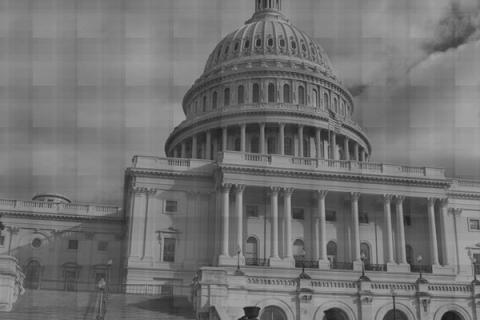Protesters demonstrating against the excesses of crony capitalism and its corrupting influence on our nation’s politics have occupied a park in Manhattan’s financial district for over a week. Their numbers are growing and the movement appears to be spreading.
On September 17th, thousands of demonstrators descended on downtown Manhattan in New York City to protest the all-too-cozy relationship between Wall Street and Washington D.C. Protesters have occupied Liberty Plaza, a nearby park, ever since. By day their numbers swell into the thousands, at night hundreds remain camped out in the plaza.
Though the protesters have remained peaceful, they have not obtained permits for any of their actions, as would normally be the case for a large political demonstration. Scores were arrested this past Saturday during a march to Manhattan’s Union Square.
Early in the march, one protester walked into the street and dropped to his knees in front of the Chase Bank building. “That’s the bank that took my mother’s home,” he said. He identified himself as a law student from Washington D.C., and continued:
“I will go to jail tonight because it’s not right. I will not just stand by and watch. I would rather die than be quiet and watch them lose everything.”
Told by police that he would be arrested if he did not get off the street, he put his hands behind his head before he was handcuffed and arrested.
On Saturday night, hundreds remained in Liberty Plaza, converging on New York City from all over the country. Individuals from dozens of states across the Union can be found at the encampment: from Maine to Florida, Texas to Michigan, California to Oregon, and even Alaska.
Wiljago Cook, a young woman from Oakland, California, said she quit her job and bought a one-way ticket to New York to take part in the protests and assemblies.
“This is too important not to attend and participate,” she said, “I wanted to do what I could to help start this movement.”
Not all are planning to stay in New York indefinitely, however. Many intend to return home to build the movement and spread its message. Yumi, a young professional visiting New York from San Francisco, has been following developments surrounding the protests very closely. “My hope is to bring knowledge and tactics back to San Francisco, where the movement has been slowly and steadily building,” she said. Over a hundred people demonstrated in San Francisco’s financial district last week to coincide with the New York protests.
Occupation protests are now being planned across the country. Occupy Together has become the informal umbrella website for the burgeoning network. It states that assemblies are being planned in over thirty cities across the country, including San Francisco, Los Angeles and San Diego.
If there is one issue that unites all the demonstrators, it may well be the fact that they feel they have no voice in government, and that they are not represented by either Democrats or Republicans.
“The two-party system does not represent most people’s viewpoints,” said Ms. Cook, “we want to create a new way to come to consensus about what we want as a society.”
Unlike most protests and rallies, which are organized in a rigidly hierarchical manner, the occupation protests utilize a form of consensus-driven direct democracy, the general assembly, to plan their actions and organize day-to-day activities. Smaller working groups are devoted to everything from food and shelter to media, arts and culture.
The assemblies in New York have been streamed live online, and their minutes are posted to the web. Similar organizing assemblies were held in San Francisco and Los Angeles over the weekend.

